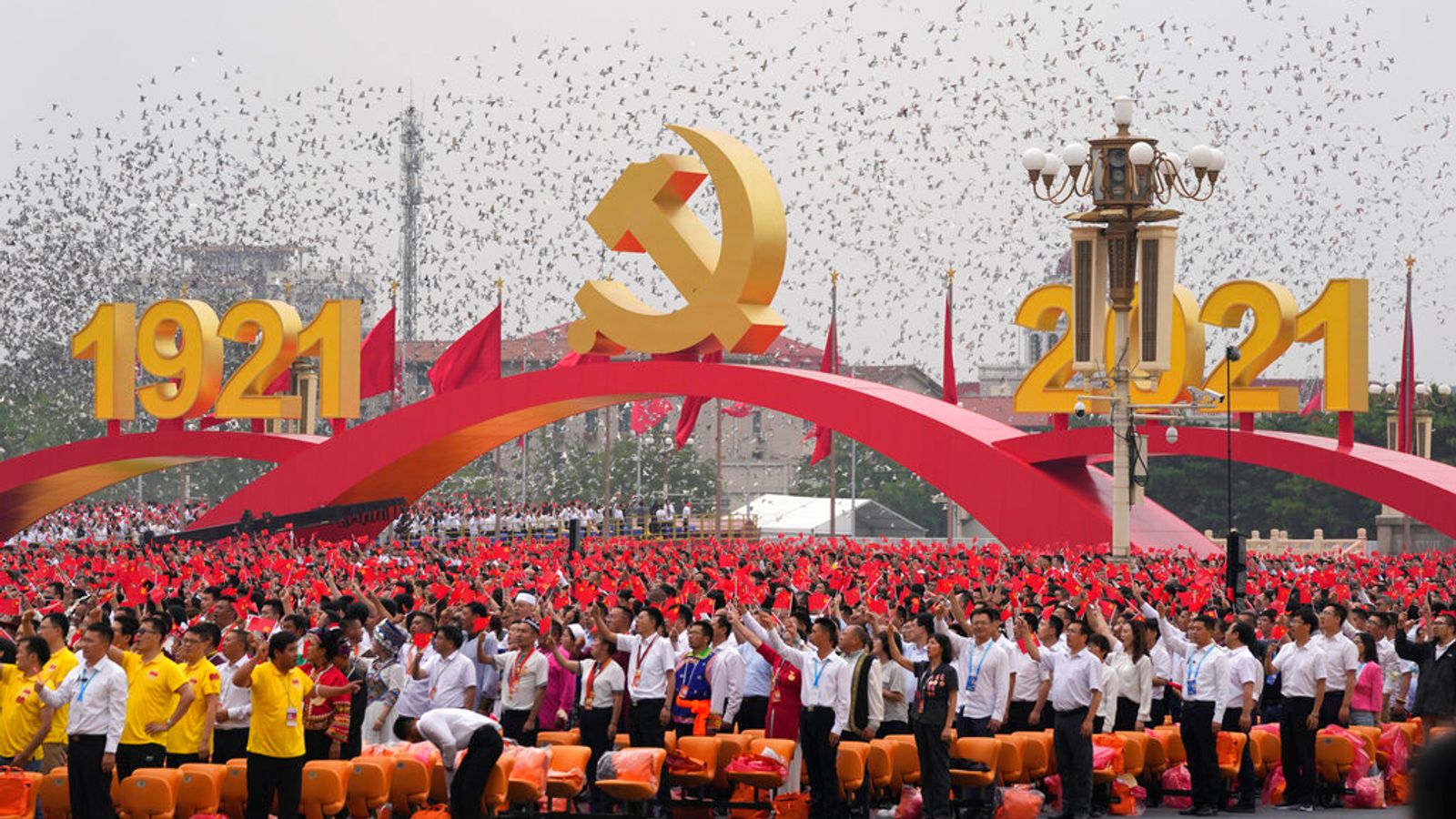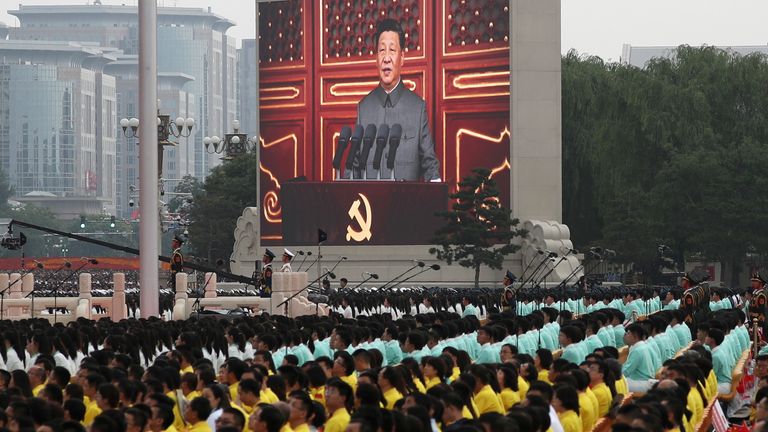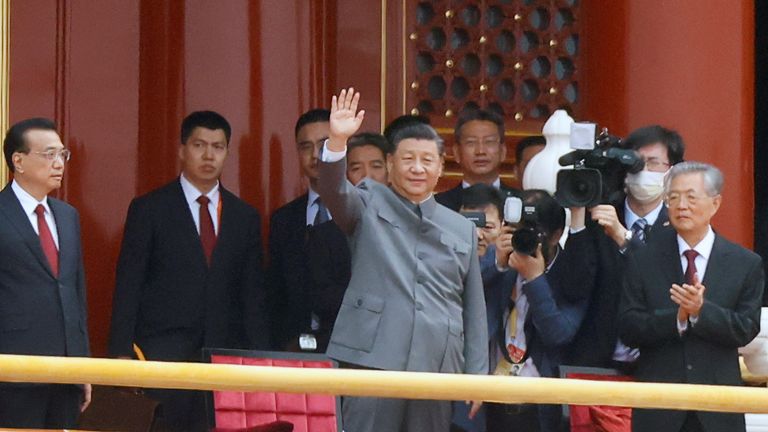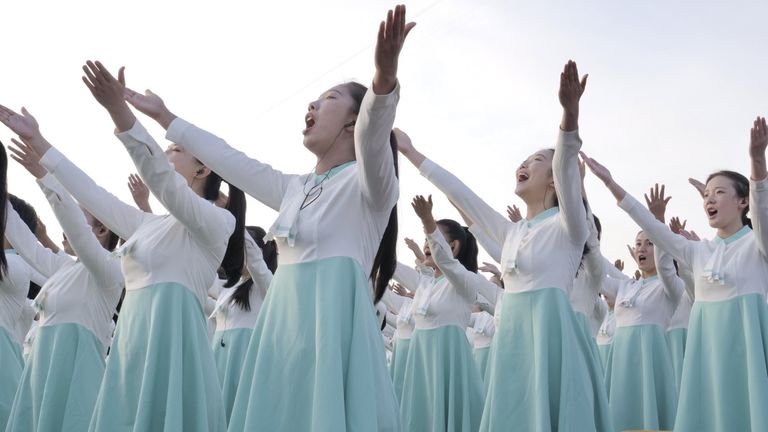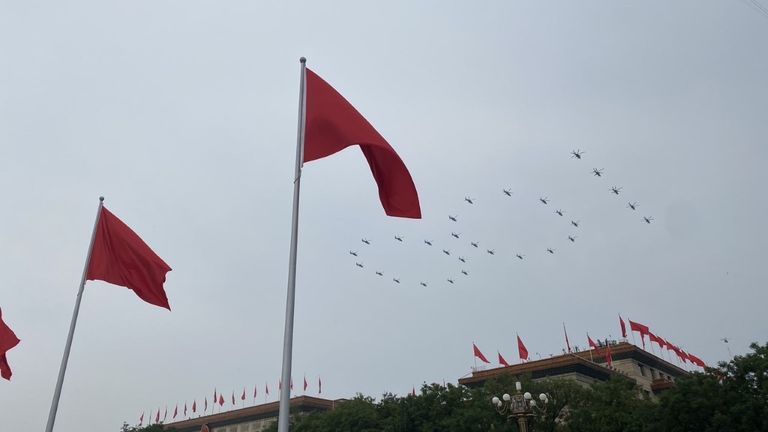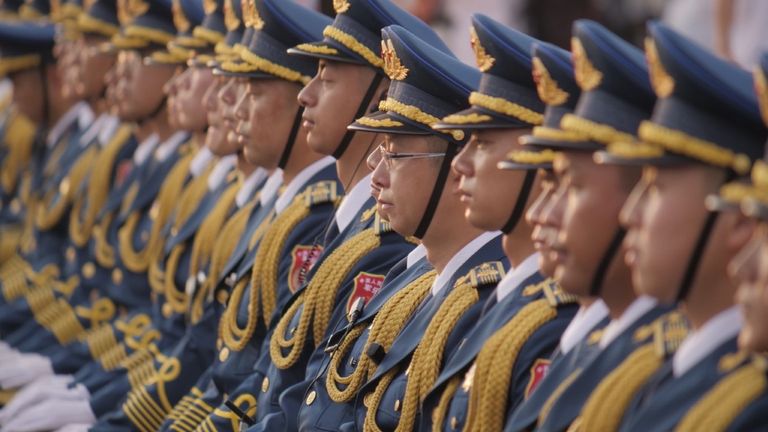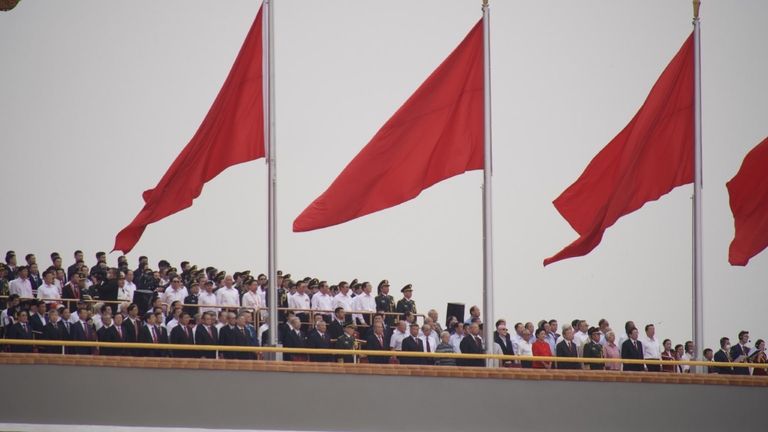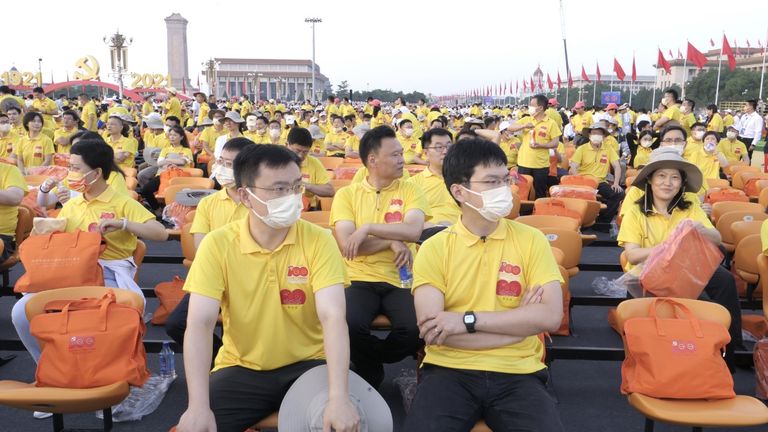It was a long wait for the Party’s party.
The thousands of people awarded a ticket to Tiananmen Square had left their quarantine hotels at 3am for an 8am start, passing through security check after security check.
To pass the time, they sang old red songs – Socialism is Good and other such classics – and practised vigorous flag waving. It’s all in the wrist.
But cometh hour, cometh the man. Xi Jinping took to the rostrum. All the other leaders on stage were wearing Western business suits.
Xi alone was wearing a grey Mao suit.
A racket of helicopters approached from the east, in formation to spell out ‘100’. China‘s newest stealth jets roared after them.
And then the artillery gave a 100-gun salute, the echoes thumping around the corners of Tiananmen in turn.
It was an impressive but fairly modest display by the standards of China’s vast military.
The real star was Xi, the president of China but – much more importantly – the general secretary of the Communist Party. He gave a long speech.
Some of it was celebration, some of it justification for a regime that allows no opposition: “Only socialism can save China, and only socialism with Chinese characteristics can develop China,” Xi said.
The ideology can be a bit dry but the Party knows which red meat to throw these days, leaning on nationalism as much as Marxism to gee up enthusiasm
So this line prompted the biggest cheer of the day: “The Chinese people will absolutely not allow any foreign force to bully, oppress or enslave us and anyone who attempts to do so will face broken heads and bloodshed in front of the iron Great Wall of the 1.4 billion Chinese people.”
The crowd loved it. And playing those nationalist credentials will be crucial to the Party’s future success.
But the ceremony was a display of the CCP’s remarkable survival. Thousands of people filling Tiananmen Square in neat rows, playing their part.
One hundred years ago it was a handful of subversives meeting in secret in Shanghai. They were chased into the mountains and hid out in caves for years.
Then triumph in a bloody civil war, and the beginning of uninterrupted one-party rule.
That rule has had its catastrophes. The Great Leap Forward led to a famine which killed tens of millions. The terror of the Cultural Revolution followed.
And in 1989, in the same square used today for the pageantry of the Party, the Tiananmen student demonstrators asked for greater freedom – and were met with bullets in the surrounding streets.
The square still remembers them, even if the Party cares not to.
